Bam Aquino
Sen. Bam: Solve real problems like inflation, time is wasted on fake allegations
Sen. Bam Aquino said he would rather work on solutions to real problems of Filipinos instead of waste time on fake news and baseless accusations against opposition leader, Vice President Leni Robredo, and her hometown, Naga City.
“Bakit pa tayo mag-aaksaya ng panahon sa mga pekeng balita? Ang tunay na isyu, nagugutom na at nahihirapan ang mga Pilipino dahil sa taas-presyo. Solusyunan at aksyunan na natin ito,” said Sen. Bam.
“Sana pakinggan ng administrasyon ang totoong hinaing ng tao,” added Sen. Bam, referring to the cries of Filipino people due to the high prices of goods caused by the Tax Reform for Acceleration and Inclusion (TRAIN) Law.
Sen. Bam remains hopeful that the government would see the urgency of enacting the Bawas Presyo Bill into law to spare Filipinos, especially the poor, from additional burden.
“Ito ang totoo, magtataas ulit ng excise tax sa petrolyo sa Enero. Dagdag dalawang piso kada per litro. Saan na tayo pupulutin? Suspindihin na natin ito,” stressed Sen. Bam, one of four senators who voted against the ratification of the TRAIN Law.
In his Senate Bill No. 1798 or the Bawas Presyo Bill, Sen. Bam wants to suspend the excise tax on fuel under the TRAIN Law when the average inflation rate surpasses the annual inflation target over a three-month period.
Sen. Bam: ‘Wag paikutin ang taumbayan sa pahamak ng TRAIN Law
Sen. Bam Aquino disputed the government’s pronouncement that there will be no jobs lost if the second package of the Tax Reform for Acceleration and Inclusion (TRAIN) will be enacted into law.
“Sa TRAIN 1, sinabi ng gobyerno na hindi ito makaaapekto sa pagtaas ng presyo. Ngayong TRAIN 2, sinasabi nilang walang mawawalang trabaho ang mawawala. May maniniwala pa ba sa kanila?,” Sen. Bam asked
“Huwag na po niyong paikutin ang taumbayan. Nalulunod na nga sa taas presyo dahil sa TRAIN 1, lolokohin nyo pa pagdating dito sa TRAIN 2,” added Sen. Bam, one of four senators who voted against the ratification of the first TRAIN Law package.
Sen. Bam also doubted the government’s capacity to deliver on time the financial package proposed in the House version for workers who might be displaced once TRAIN 2 is enacted into law.
“Malapit nang matapos ang 2018 pero hanggang ngayon, hindi pa rin nila naibibigay ang pangakong tulong sa ilalim ng TRAIN 1 habang nalulunod na sa taas ng presyo ng bilihin ang mahihirap na Pilipino,” said Sen. Bam, referring to the unconditional cash transfer program and the Pantawid Pasada Program.
In a separate interview in San Fernando, Pampanga, Sen. Bam said locators in the Clark Freeport Zone might be forced to close shops and move to other countries if TRAIN 2 is enacted into law, which will lead to loss of jobs for thousands of Filipinos.
“Marami sa industry associations ang nagsabi na kapag natuloy ang TRAIN 2, aalis sila at lilipat sa Indonesia, Thailand at Vietnam. Mahalaga ang trabaho ng bawat Pilipino at kailangan natin itong protektahan,” said Sen. Bam, who committed to fight provisions in TRAIN 2 that will affect the employment of thousands of Filipinos.
“Marami na ngang palpak ang TRAIN 1, itutulak pa rin ang TRAIN 2. Siguraduhin na muna nating napag-aralan na talaga ang epekto ng mga panukalang ito kundi baka mayroon nanamang masasagasaang mahihirap na Pilipino,” said Sen. Bam.
Sen. Bam emphasized that the government should first address the problems caused by TRAIN 1, like its effects on inflation and prices of goods, before pushing for TRAIN 2.
Instead of insisting on the passage of TRAIN 2, Sen. Bam said the government should support his measure that aims to address the high prices of goods caused by TRAIN 1.
Sen. Bam has filed Senate Bill No. 1798 or the Bawas Presyo Bill, which seeks to suspend the excise tax on fuel under the TRAIN Law when the average inflation rate surpasses the annual inflation target over a three-month period.
The senator is pushing for the passage of the measure since there is a scheduled second round of increase in excise tax on fuel under the TRAIN Law in January 2019.
Sen. Bam to NFA Administrator: Mahiya ka naman, mag-resign ka na
Sen. Bam Aquino questioned the government’s failure to lower the prices of rice in the market despite its promise that rice importation will solve the problem.
“Sino na ba ang nagmamando sa bansa? Itong malaking krisis sa bigas, hindi man lang masolusyunan,” questioned Sen. Bam.
“Nag-import sila para maresolba ang problema pero mukhang lumala pa ngayon ang sitwasyon at nauwi sa rice crisis sa Zamboanga City,” added Sen. Bam.
Sen. Bam’s pronouncement came in the light of Zamboanga City’s plan to declare a state of calamity due to rice shortage. Prices of rice in the city went up to a high as P68 per kilo, with the lowest being sold at P55 per kilo.
Earlier, the government approved the importation of 500,000 metric tons of rice to address the lack of supply of affordable NFA rice in the market.
“Saan napunta ang ipinagmamalaking inangkat ng National Food Authority (NFA) para mapababa ang presyo ng bigas sa mga palengke?” asked Sen. Bam.
Sen. Bam expressed fear that the imported NFA rice could land in the hands of traders who will sell it for a higher price, putting more burden on the shoulder of poor Filipinos.
Sen. Bam renewed his call for the resignation of some NFA officials, led by its administrator Jason Aquino, for their failure to address the problem of lack of supply of affordable rice in the market.
“Mahiya naman sila sa taumbayan at mag-resign na. Dahil sa kanilang kapalpakan, nalulunod ang mga pamilyang Pilipino sa taas ng presyo ng bigas,” said Sen. Bam.
Earlier, Sen. Bam urged the NFA administrator to quit his post due to the agency’s failure to fulfil the 15-day buffer stock policy for almost one year, beginning March 2017.
Sen. Bam asks Pope Francis: Pray for PH, poor Filipinos
ROME, Italy — In a private audience with Pope Francis here, Sen. Bam Aquino asked the Holy Father to pray for the Philippines and poor Filipinos amid the challenges of injustice and suffering that the country is facing.
Sen. Bam, who shared his experience of meeting Pope Francis on his Instagram page, also presented to Pope Francis letters from members of the Philippine clergy, such as Bro. Armin Luistro of the Purple Cross Movement.
“Holy Father, I have some letters from our religious leaders in the Philippines. Our country needs your prayers,” Sen. Bam told the Holy Father during the private audience. In response, Pope Francis smiled back, took the letters and blessed Sen. Bam and the rosary that the senator was holding in his hand.
Sen. Bam said one of the letters asked Pope Francis to pray that the violence in the Philippines comes to an end and for the welfare of the widows and orphans left by the drug war.
Sen. Bam had the distinct honor of meeting Pope Francis as the country’s representative to the 9th Annual Meeting of the International Catholic Legislators Network (ICLN).
In his message to Catholic and Christians legislators, Pope Francis said Christian politicians are especially called… with humility and courage, to bear witness to their faith.
Sen. Bam, for his part, said Pope Francis’ message encourages Catholics to stand up for God and for fellow Filipinos, against all odds and with all humility and courage.
“Kung totoong nananampalataya ka, dapat wala kang takot na manindigsan para sa Diyos at para sa ating mga kababayan,” said Sen. Bam.
Sen. Bam: Equipment, livestock and other personal property now OK as bank loan collateral
Filipinos will soon be able to use their personal properties, and not just land titles, as collateral for bank loans, according to Sen. Bam Aquino.
Sen. Bam said that President Duterte signed on Aug. 17 Republic Act 11057 or Personal Property Security Act, which he pushed in the Senate as principal author and co-sponsor.
With the law, Sen. Bam said micro, small and medium enterprises (MSMEs) will have better access to capital to grow their business since they’ll be allowed to use personal properties, like inventory and equipment, as collateral for loans.
“Sa batas na ito, mabibigyan na ang ating mga kababayan ng mas maraming paraan para makakuha ng pautang na maaari nilang gamitin para makapagsimula o di kaya’y magpalawak ng negosyo,” said Sen. Bam.
“Sa tulong ng batas na ito, umaasa tayo na mas marami pang Pilipino ang makakapagsimula ng negosyo bilang pagkukunan ng ikabubuhay,” added Sen. Bam.
Usually, banks and other financial institutions prefer to immovable assets, like land, as collateral for loans. With this law, equipment, inventory, livestock, motor vehicles and receivables will now be accepted as collateral, creating a healthier loan environment for both MSMEs and banking institutions.
The law also provides safeguards to reduce the risk involved in accepting movable assets.
“This just one step towards inclusive finance in the Philippines. Tuloy pa rin ang aming pagtrabaho sa mga reporma para sa mga maliliit na negosyanteng Pilipino,” said Sen. Bam.
A known advocate of entrepreneurship and MSME development as a source of livelihood for poor Filipinos, Sen. Bam passed several laws to support the sector, including the Go Negosyo Act, Youth Entrepreneurship Act, Philippine Competition Act, Foreign Ships Co-Loading, Microfinance NGOs Act and the Credit Surety Fund Cooperative Act.
The Personal Property Security Act is Sen. Bam’s 27th law in his five years as senator.
Sen. Bam: Tulungan, ‘wag pahirapan ang mga mangingisda
Sen. Bam Aquino stressed that the government should first help fishermen increase their catch and reduce their expenses instead of just importing “galunggong” to lower the prices of fish in the market.
“Sana tulungan din ng pamahalaan ang mga mangingisda na madagdagan ang kanilang huli at babaan ang kanilang gastos sa petrolyo,” said Sen. Bam, referring to the Department of Agriculture’s intention to import galunggong.
The senator said fishermen are overwhelmed with the high operational costs, with half of it going to fuel, based on a study by the Bangko Sentral ng Pilipinas (BSP).
“Nalulunod ang mga kababayan nating mangingisda sa taas ng operational cost kaya bumababa ang kita nila,” said Sen. Bam, who is pushing for a subsidy or support program for fisherfolk, similar to the Pantawid Pasada Program for jeepney drivers, to help them cover the cost of fuel and inputs.
Sen. Bam insisted that the government should find other means to lower prices of goods and services that will not be detrimental to other sectors.
Instead of importation and lowering tariffs, Sen. Bam said the government should support his Senate Bill No. 1798 or the Bawas Presyo Bill, which seeks to suspend the excise tax on fuel under the TRAIN Law when the average inflation rate surpasses the annual inflation target over a three-month period.
Sen. Bam said the urgent passage of his measure is necessary since there is a scheduled second round of increase in excise tax on fuel under the TRAIN Law in January 2019.
“Kapag hindi naawat, panibagong bigat na naman ito para sa mga jeepney driver, tricycle driver at pati na rin sa mangingisda,” said Sen. Bam, one of four senators who voted against the ratification of the TRAIN Law.
Sen. Bam Aquino’s message for Ninoy Aquino Day
Sen. Bam to gov’t: If fuel price is a major issue, support Bawas Presyo Bill
It is only logical for the administration to support his Bawas Presyo Bill after pointing to rising fuel prices as the reason for Filipinos’ perception that life worsened, according to a senator.
“Ngayong umamin na ng gobyerno, siguro naman ay susuportahan na nila ang isinusulong nating panukala para sa suspindihin at i-rollback ang buwis sa petrolyo,” said Sen. Bam Aquino, referring to his Senate Bill No. 1798 or the Bawas Presyo Bill.
“Aksyon at solusyon ang kailangan ng taumbayan, hindi debate at palusot. Ipasa na natin ang Bawas Presyo Bill para tulungan ang mga Pilipinong nalulunod na sa taas-presyo,” added Sen. Bam.
Sen. Bam’s measure seeks to suspend the excise tax on fuel under the TRAIN Law when the average inflation rate surpasses the annual inflation target over a three-month period.
The senator made the pronouncement after Malacanang attributed the results of a latest survey showing more Filipinos believe their lives worsened during the second quarter of this year to rising fuel prices.
In its June 2018 survey, the Social Weather Stations (SWS) said that 32 percent of adult Filipinos claimed their lives improved while 27 percent said their lives worsened for a net gainers score of +5. The result was 15 percent lower than the 20-percent net score in March 2018.
During Thursday’s Senate hearing on the effects of the TRAIN Law, Sen. Bam criticized the Department of Finance (DOF) for not taking into consideration the indirect effect of the tax reform program on inflation.
An official of the DOF admitted that its earlier claim during Senate deliberation that 0.4 percent effect of the TRAIN Law on inflation was based only on direct effect.
“Ang hirap tanggapin na hindi nag-forecasting ang ating economic managers. Kabuhayan at kalagayan ng mga pamilyang Pilipino ang maaapektuhan sa pagtaas ng presyo ng langis dahil sa TRAIN Law,” said Sen. Bam, one of just four senators who voted against the ratification of the TRAIN Law.
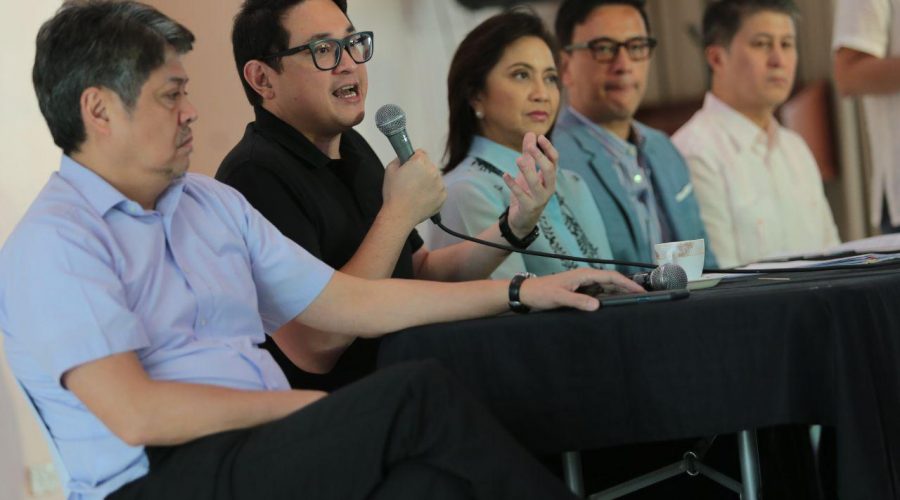
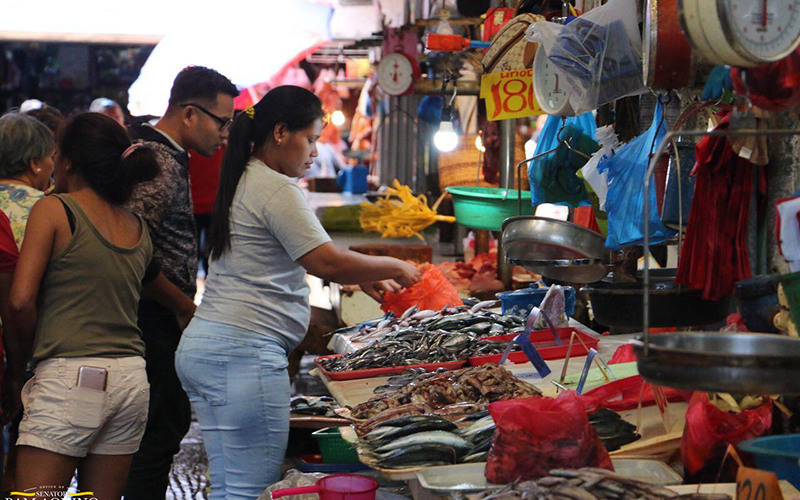
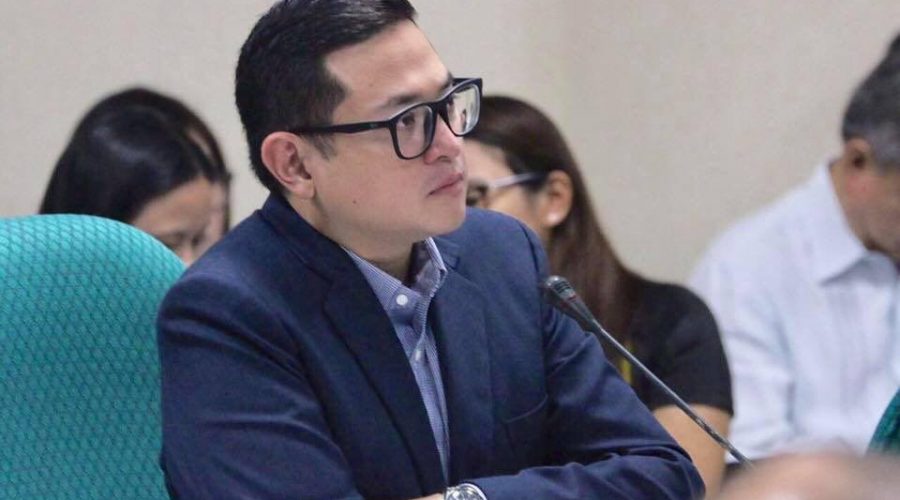
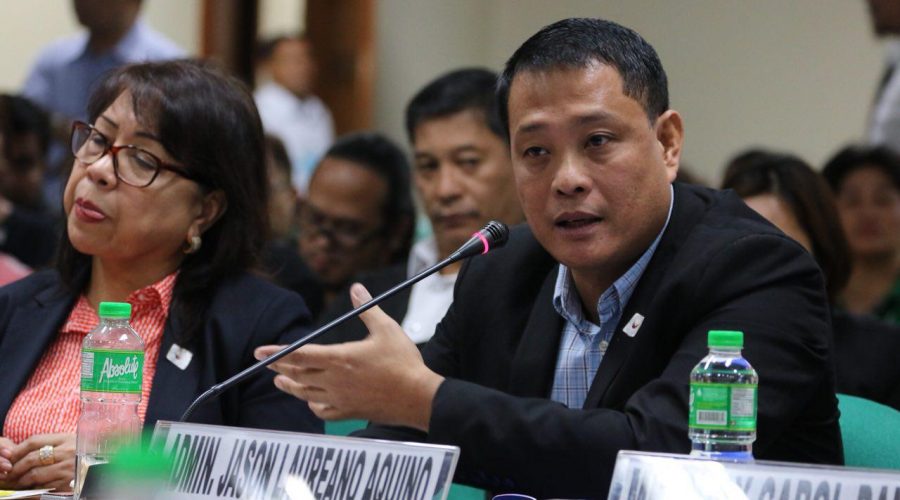
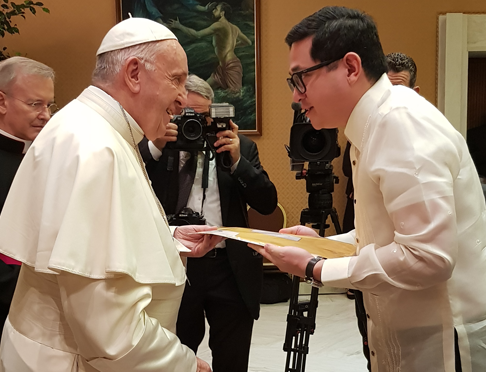
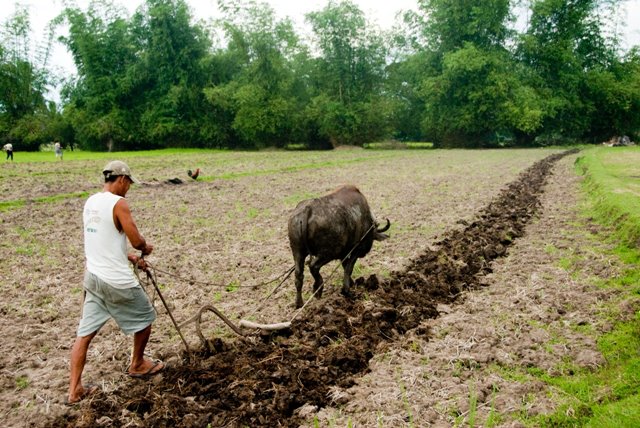

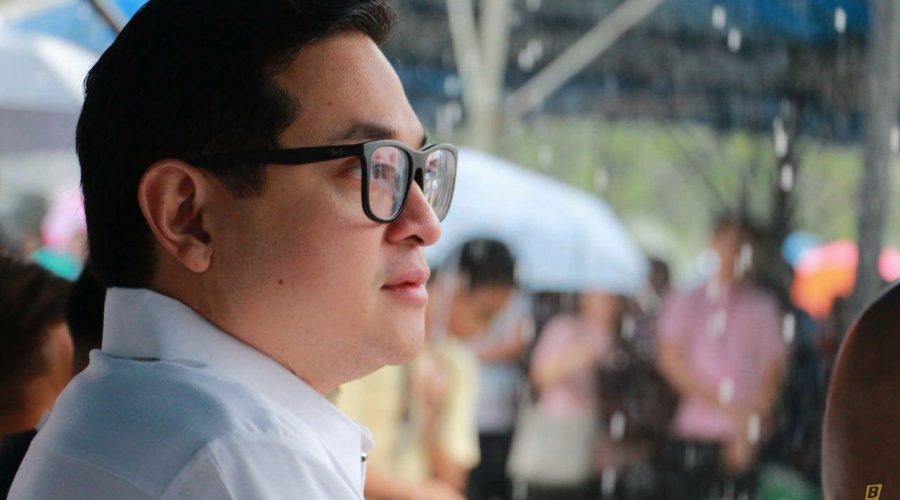
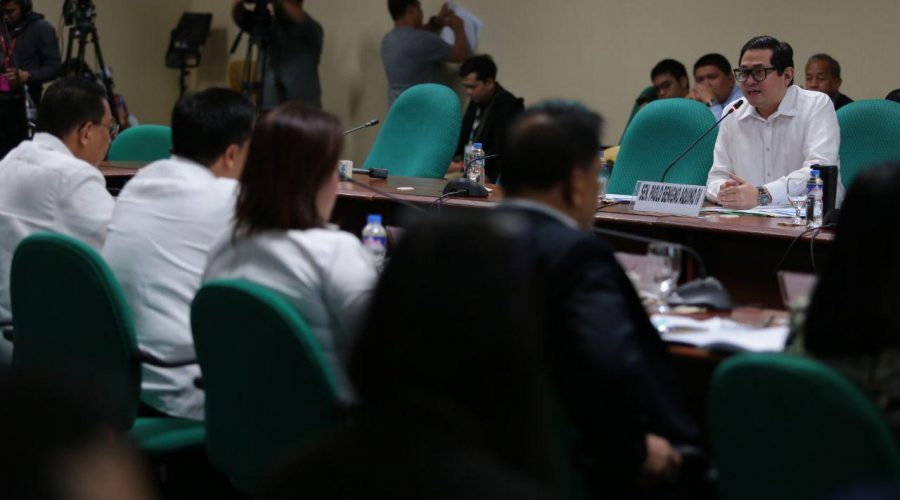
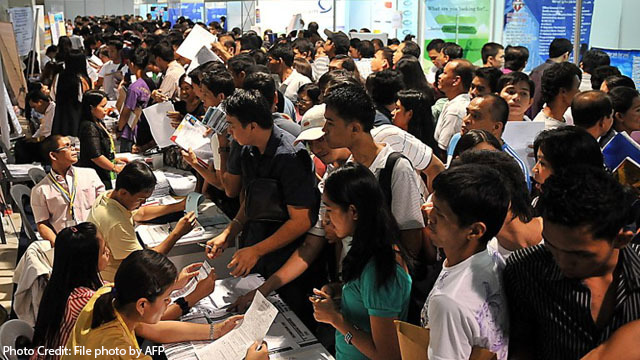
Recent Comments